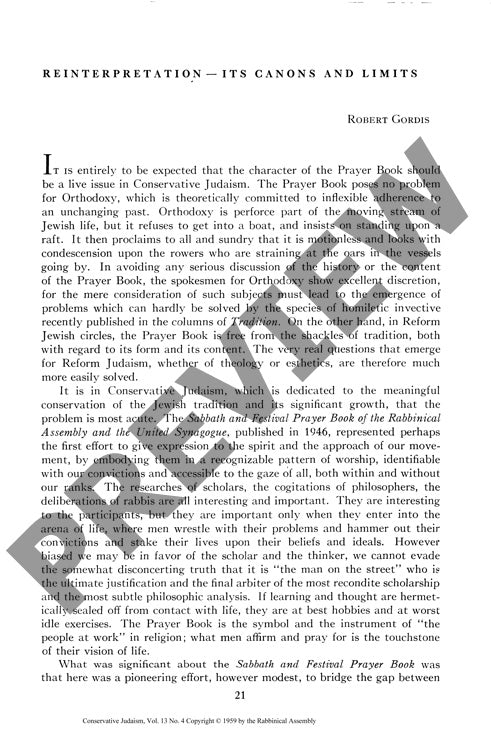Reinterpretation Its Canons and Limits
Couldn't load pickup availability
The complex relationship between tradition and change in Jewish liturgy came to a head in 1946 when the Rabbinical Assembly's Sabbath and Festival Prayer Book sparked controversy over its treatment of sacrificial references. At the center of this debate lay a fundamental question: How can religious texts meaningfully evolve while preserving their authentic character? Through comparative textual analysis of prayer book modifications, particularly changes from future to past tense in the Musaf service, two crucial principles emerge governing legitimate reinterpretation. Technical terms with precise meanings prove more resistant to reinterpretation than general terms, while contextual factors significantly influence the acceptability of textual evolution. Analysis of specific Hebrew terminology, notably עבודה (service) and קרבנות (sacrifices), reveals that while עבודה permits reinterpretation due to its general nature and historical evolution from sacrifice to prayer, קרבנות resists such treatment owing to its technical specificity. These findings, responding to criticism by Rabbi Ben Zion Bokser, demonstrate that meaningful conservation of Jewish tradition requires clear distinction between legitimate reinterpretation and textual distortion, advocating for principled modification when traditional texts no longer align with contemporary religious convictions.

More Information
-
Physical Description
-
Publication Information
Published 1959
ISBN
-
Publication Credits
Robert Gordis

